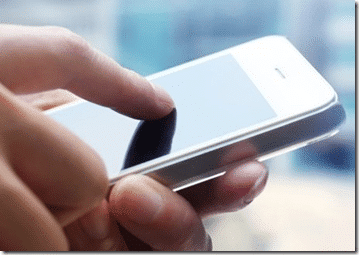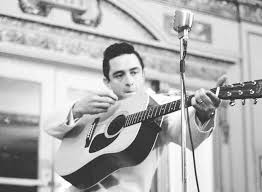Yesterday was the two year anniversary of the Sandy Hook tragedy in Newtown, Connecticut.

On that day back in 2012, I sat down and wrote something. Then I filed it away. I felt like today was the right day to finally post it.
_________________________________
An email from the principal alerts us that there had been a shooting in a Connecticut elementary school. “There are fatalities.”
I push it aside. Even though I’m an elementary school teacher in Connecticut, I am also the teacher of a class of fifth grade students, and we are in the midst of a lesson about dividing fractions. My students, who have spent the last two weeks trying to find common denominators, have just realized how much easier dividing fractions is and are clamoring for more problems in order to demonstrate their mathematical prowess.
I oblige. I push my curiosity and concern and mounting fear to the side because these kids need to learn about division at this moment and not about the possibility of dead students or dead teachers in a school that probably looks a lot like their own.
A little while later my students head to music class. I stop in the teacher’s room for news. “A teacher is dead,” I am told. “Maybe a few students, too.” It’s so quiet in the room. I have never heard such quiet in the teacher’s room before.
I return to the classroom. I find more news on the Internet. Twelve are reportedly dead. A mix of teachers and students. Two possible gunmen.
My students return from music class. They have been practicing for a vocal performance this afternoon. The ribbon cutting ceremony for our rooftop solar panels is scheduled for later today. Board of Education members, officials from the energy commission, and other dignitaries will be in attendance. It’s a big deal for our school, and the kids are excited.
I am no longer excited about anything. I am carrying a 500 pound burden on my back. Every teacher in every school across America, but especially here in Connecticut, is now carrying the same burden. Somewhere down the road in a town not unlike our own, a school has become the site of one of the worst shootings in American history.
But I am a teacher, so I must protect my students today. I must not allow this tragedy to creep into their lives until they are safely home with their parents. We don our masks as we stand before our classes, reading books, positing equations, asking questions, and demanding excellence. We pretend that the world is normal and that we are unchanged.
We did the same on 9-11. As our country was being attacked, I stood before my third graders and recited the poetry of Robert Frost and discussed the nuances of bar graphs. I still don’t know how I did it.
My students leave for lunch. I return to the Internet. The death count is at 26 now. At least 18 are children. The exact size of my class. I walk by a friend and his class on the way to the office. He teaches kindergarten. The same age as the kids in the shooting. I imagine his entire class disappearing forever.
When we practice for possible emergency situations, students ask lots of “What if?” questions.
What if I’m in the bathroom when the bad thing happens?
What happens if a bad man comes to our classroom door?
What if the bad man breaks the window and gets into our classroom?
I always answer the same way. “I would never let anyone hurt you. I would do everything to keep you safe. I promise. I am the great and powerful Mr, Dicks. You know that.”
I say this with the all the conviction I can muster, and my students believe me, because I believe it myself. I would stand between them and anything if necessary. But today, I wonder if I could have kept that promise had I been in that school. I would have tried my best, but I work in an elementary school. I never expected something like this. I realize that no matter what I tried, I wouldn’t be able to stop a man in body armor with automatic weapons and hundreds of rounds.
Tears fill my eyes, but I wipe them away before they have time to take hold. One of my students is moving away, and today is her last day at our school. I focus my attention on her instead. I plan for her last half hour with us. I push my teacher puppet forward. Inside, I am trembling with fear. It is a combination of my own battles with post-traumatic stress disorder, the fear of my inadequacy as a protector of my students, and the sudden realization that my own children are also living in this changed world. Clara is three years old and Charlie is six months old. They will learn about today’s events in the same way that my current crop of students learned about 9-11.
For my children, today will be a history lesson. For my students, it is their life and their world.
Meanwhile, I am reading The Day the Babies Ran Away to my students. I smile and ask questions and show my students the pictures as a police car parks outside my classroom. A precaution, I assume.
None of my students notice.
We spend an hour in the auditorium celebrating the installation of solar panels on the rooftop of our school. Our band plays “You are My Sunshine.” Our choir sings a song from last night’s winter concert. We watch a video that shows how the energy from the sun is converted to electricity. Our school’s acting troupe performs a skit demonstrating the value of clean energy. Our town’s mayor addresses our student body. A Board of Education member and several other dignitaries follow with brief speeches of their own. My soon-to-be departing student is chosen to cut the ceremonial ribbon.
The children laugh. They sit on the edge of their seats. They beam with pride over their school’s energy initiative. As they celebrate, their teachers pretend to celebrate. We are the real acting troupe on this day. We can think about nothing but an entire kindergarten class wiped off this Earth by a crazy man with a gun. We correct behavior and praise attentiveness and applaud our students’ performances, but we cannot stop thinking about the decisions and sacrifices made by our fellow teachers in a town just down the road.
We return to our classroom. Some of my students are crying now because their friend is leaving them for the last time. I watch them cry tears that I have been holding back all day long. I cannot afford to shed even a single tear for my departing student because the floodgate holding back my tears is a precarious one.
The principal comes on the intercom to remind teachers to be vigilant during dismissal today. His words are intentionally vague and nondescript, meant only for the ears of adults, but my students are the elder statesmen of the school and immediately know that something is wrong. Someone points to the police car in front of the school and connects it to the principal’s message. Eyes turn from the intercom speaker to the police cruiser to me. The looks on their faces are that of concern and fear.
“Was there another shooting?” a student asks.
I can’t believe how quickly they have put it together. It takes everything I have to speak in a level voice. I tell the kids that something unfortunate has happened, but it has happened very far away and there is no danger. “When bad things happen, parents and teachers like to worry, so we’re just being extra careful today. But you have nothing to be afraid of and nothing to worry about. I promise you.”
The bell rings. Students leave. There are more tears for my departing student. Hugs. High fives. Assurances that calls and texts and emails are forthcoming. They are crying for the loss of their friend, and I want to cry to. I still cannot. The buses have yet to be called. I must continue to operate my teaching puppet for the sake of the students waiting for buses. I must look brave and calm and even happy for these children who are losing a friend and losing a little more of the innocence that their world once possessed.
In moments they will pass through the doors of my classroom and face the reality of what has happened in a school that looks so frightfully like their own. They will have to come to terms with the idea of twenty dead children in a school just like their own.
I don’t know how they will ever do it.








